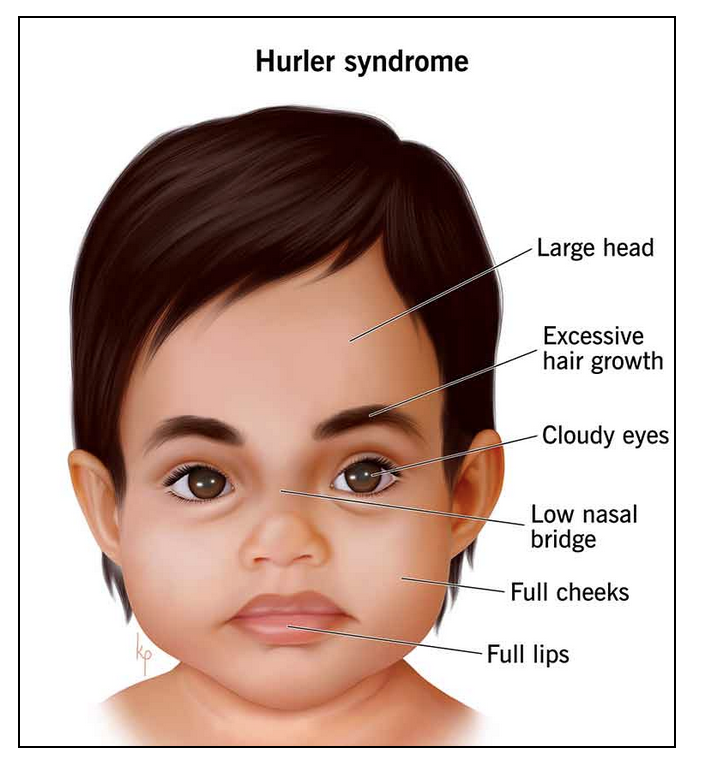News Excerpt:
A treatment protocol that combines autologous stem cell transplants with gene therapy shows signs of correcting skeletal deformities in eight children with Hurler syndrome, a rare disease that stunts skeletal system growth.
About Hurler syndrome:
- Hurler syndrome was first described by German paediatrician, Gertrud Hurler in 1919.
- It is one of the 11 disorders of the mucopolysaccharidoses (MPS).
- It is an inherited lysosomal disorder caused by the absence of alpha-L-iduronidase enzyme which is responsible for the degradation of glycosaminoglycans (GAG or mucopolysaccharides).
- Lysosomes are the parts of your cell that control molecular waste management (the storage, recycling and digestion of molecules).
- This leads to a buildup of dermatan sulfate and heparin sulfate in multiple tissues and urinary excretion of these glycosaminoglycans, resulting in progressive deterioration and, eventually, death.
- Manifestations:
- The infant with Hurler's disease appears normal at birth, but after 6 months coarse facial appearance can be noted.
- Chronic rhinorrhea may suggest frequent colds or allergies.
- Recurrent upper airway infection, otitis media, and hypertrophy of tonsils and adenoids may persist beyond early childhood.
- Hearing impairment may be secondary to such events.
- When these children attempt to sit, very mild kyphosis can be noticed, which will progress as the child grows older to the gibbus appearance, typical of Hurler's disease.
- Vision is impaired because of clouding of the corneas that can be detected in the first year of life.
- Children with Hurler's disease may sit, walk, and develop early language skills, but soon these skills are lost. Severe mental retardation becomes apparent, and affected children become bedridden.
- Spread of the syndrome: The incidence of Hurler syndrome is approximately 1 in 100,000 births. Male and female children are equally affected. All races and ethnicities are at risk of inheriting the disease.



